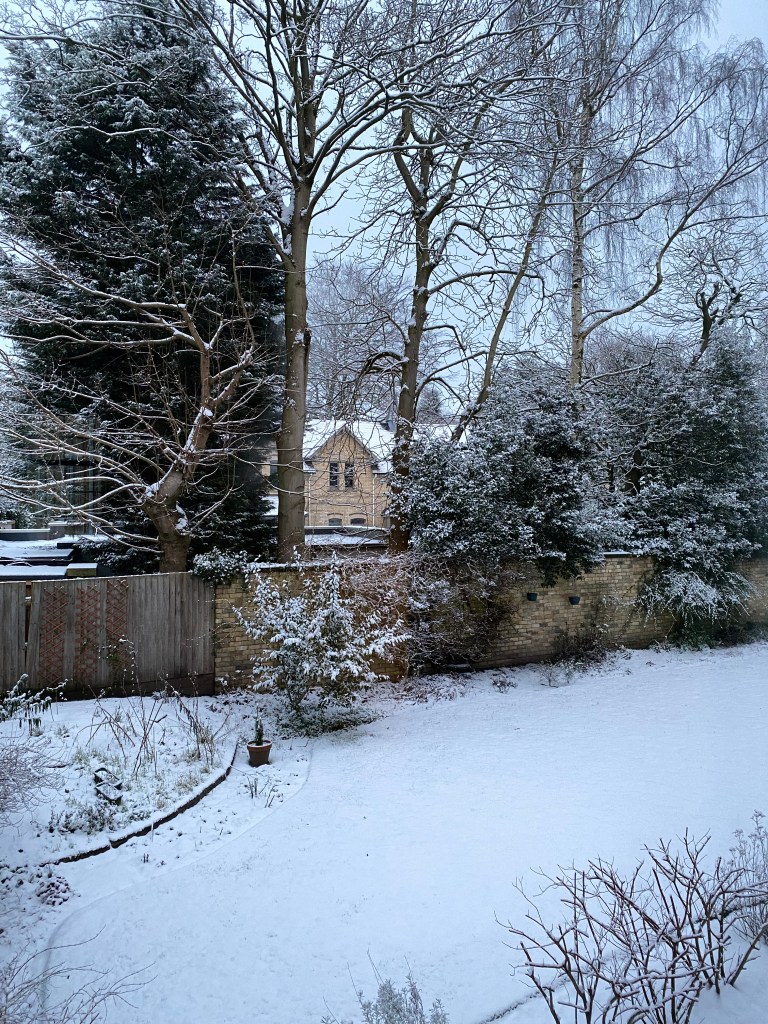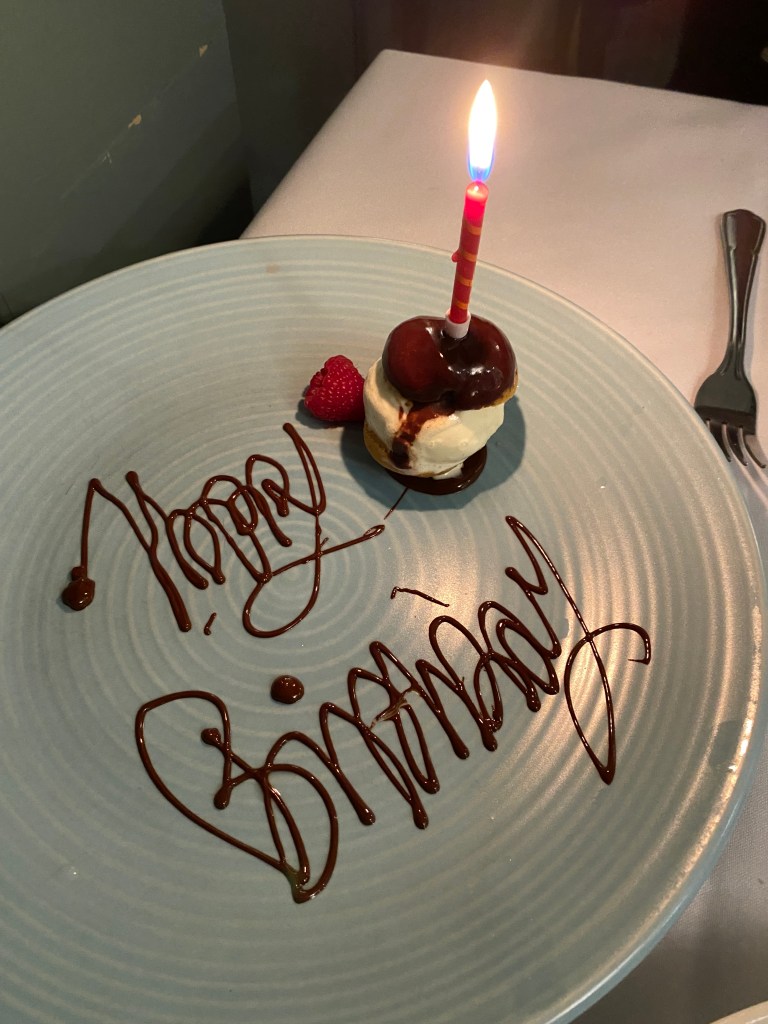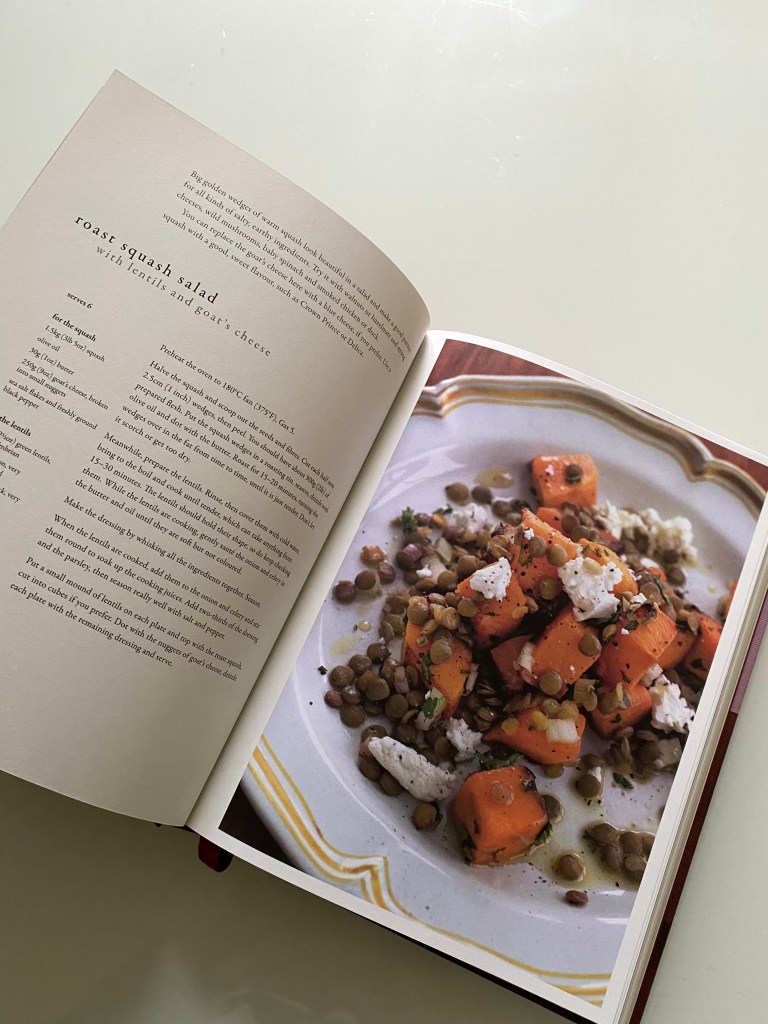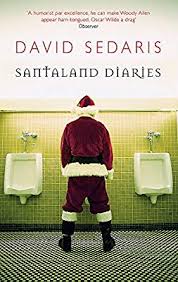
Every day I am hearing people around me expressing with some relief that the bulbs in their garden are starting to appear and marvelling at how the days are lengthening. I am sure we are all looking forward to lower heating bills and the return of a little more light, but a part of me regrets the wishing away of our lives, the constant looking forward as a way of escaping the here and now. I had a birthday this week so perhaps I am just feeling somewhat reflective. It was on Monday – for some the worst day of the week, but my personal favourite; it’s like we get a new chance to start again, every seven days!
My family and friends were lovely with their gifts, their love and their good wishes, but my birthday present to me was a whole day free of obligations and to-do lists. I pleased myself for a whole 24 hours and it was bliss! I went for a swim, had a coffee at my favourite cafe and watched Saltburn in the evening (my kids have all watched it and thought it was “weird” so I had to check it out). I loved the film actually, a definite Recommend from me if you’re looking for something to watch. Superb performances all round.


I also treated myself to a couple of books. I have been very restrained for a while now; my ‘off the shelf’ reading challenge of last year (which I’m continuing this year) made me browse my own bookcases and read titles that have been languishing unread for, in some cases, years! It’s hard to resist a sale, however, especially on your birthday, so I bought myself a cookery book I had been drooling over before Christmas, and The Wheel of the Year by Rebecca Beattie, both of which seemed to speak to where I am at right now.


Roast Figs, Sugar Snow: food to warm the soul is a beautiful book with the most sumptuous design and photography and the recipes inside make me want to spend days in the kitchen. My younger daughter and I have also been on a ‘gut health journey’ (her words!) since Christmas and this book certainly helps to resist the temptation to go for the easy junk food option and instead embrace winter’s treasures while still supporting our health and wellbeing.
The Wheel of the Year is an eight chapter book, with each stage of the year (approximately six week chunks, as indicated by the position of the stars, the weather and the cycle of nature) explored for its spiritual significance and what this means for us as humans in the world. The first chapter is Yule or Midwinter, and the second (the start date of which is 1 February, ie today!) is Imbolc or Candlemas – I’m already inspired by these beautiful words. Nature at this time is not dead, but simply resting, as I feel we should be, conserving our resources for the growth that will soon come. I already know this book is going to be my companion for the year.
January was going to be a ‘catching up’ time when it came to my reading. I’ve tried to bring a daily reading habit back into my life after a few months when I feel I didn’t read very much at all. I’m pleased with my progress, and have enjoyed it so much, though predictably I haven’t yet completed every book I’ve got ongoing. I’ll be posting reviews of all these in the next couple of weeks and giving myself until half term to completely refresh my Goodreads ‘currently reading’ profile. Trying to string January out just a little longer!


I love how winter exposes the structures of the trees – they are so beautiful. Here is a sunny winter’s day in Cambridge (left) and a rather duller day in Cheshire (right) where the deer at the National Trust’s Dunham Massey are oblivious to the paparazzi.
Enjoy the rest of winter, or summer if you are in the southern hemisphere. To winterers everywhere try and rest and rejuvenate as best you can.



 In Winter, Ali Smith examines the ideas through the dynamics of a family thrown unwillingly together at Christmas. Sophia lives alone in a large house in Cornwall. She was a successful businesswoman but, now late in life, finds herself alone, estranged from her sister, not knowing what is going on in the life of her only son in London, and navigating with despair some of the dehumanising aspects of modern life. When we meet her at the start of the book, she is communicating with what I can only describe as a hallucination of a child’s head, which floats about with her. To the reader, this seems surreal at first, but it gradually becomes merely a manifestation of Sophia’s mental state – her deep loneliness and her disconnection from normal life and society. Arthur, Sophia’s son will have similar hallucinations later in the book. Sophia goes about her Christmas Eve business in the town with sadness, recalling the once vibrant high street that is now a series of boarded-up shops, frustrated at being unable to withdraw money from her own bank account and the inability of the young man in the bank to appreciate or meet her needs as a customer – she has nostalgia for the days of the friendly bank manager.
In Winter, Ali Smith examines the ideas through the dynamics of a family thrown unwillingly together at Christmas. Sophia lives alone in a large house in Cornwall. She was a successful businesswoman but, now late in life, finds herself alone, estranged from her sister, not knowing what is going on in the life of her only son in London, and navigating with despair some of the dehumanising aspects of modern life. When we meet her at the start of the book, she is communicating with what I can only describe as a hallucination of a child’s head, which floats about with her. To the reader, this seems surreal at first, but it gradually becomes merely a manifestation of Sophia’s mental state – her deep loneliness and her disconnection from normal life and society. Arthur, Sophia’s son will have similar hallucinations later in the book. Sophia goes about her Christmas Eve business in the town with sadness, recalling the once vibrant high street that is now a series of boarded-up shops, frustrated at being unable to withdraw money from her own bank account and the inability of the young man in the bank to appreciate or meet her needs as a customer – she has nostalgia for the days of the friendly bank manager.